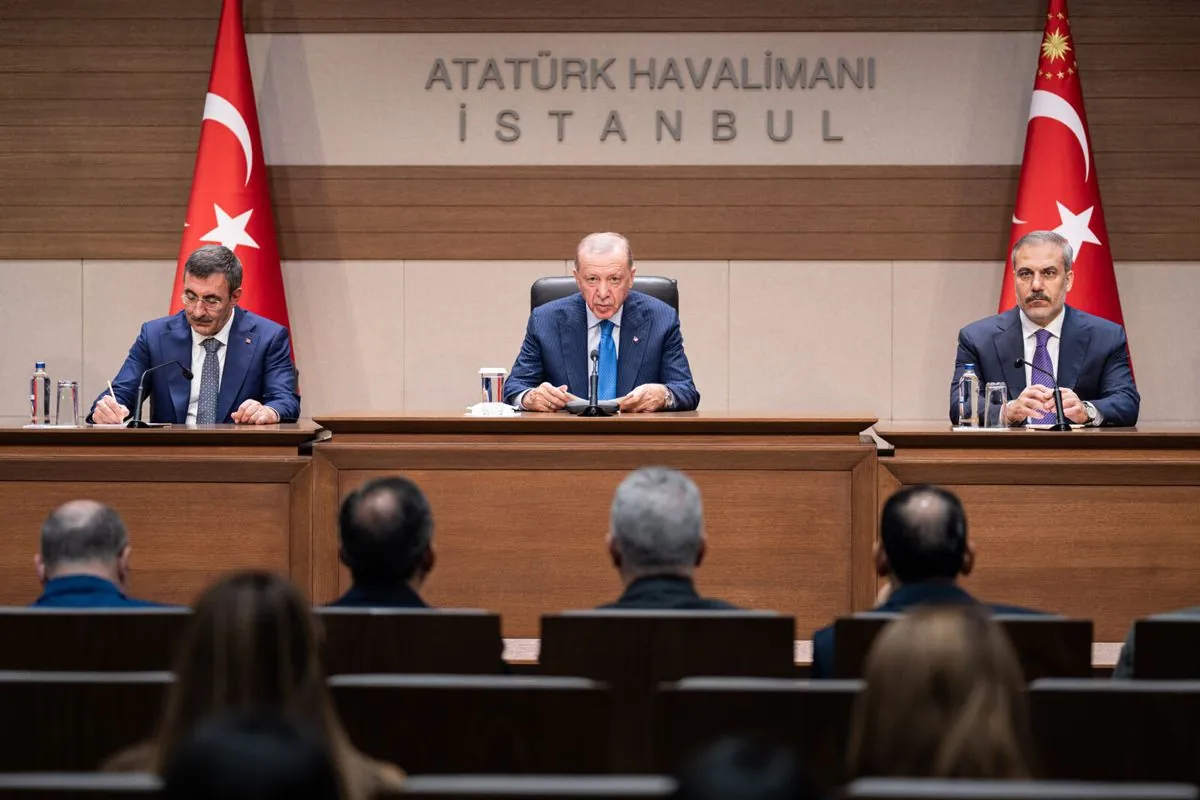Recep Tayyip Erdogan, Turkey's President, has expressed concern over recent events in Lebanon, suggesting they indicate Israel's intention to expand the conflict in the region. Speaking at a press conference in Istanbul, Erdogan emphasized the need for international action to prevent further escalation.
The Turkish leader plans to address the ongoing Gaza conflict during his speech at the United Nations General Assembly on Tuesday, September 24, 2024. This assembly, established in 1945, has been a crucial platform for discussing global issues for nearly eight decades.
Erdogan stated, "To prevent our region from being drawn into a major catastrophe, it is imperative to increase pressure on Israel." He referenced recent incidents in Lebanon, including an explosion that resulted in 39 fatalities among Hezbollah members. Hezbollah, a Lebanese Shiite Islamist organization founded in 1985, has been a significant player in the region's complex political landscape.
While Israel has neither confirmed nor denied involvement in these attacks, they are widely attributed to Israeli actions. Erdogan called upon nations committed to global peace to develop solutions to halt Israel's actions, emphasizing the international community's responsibility in addressing the situation.
"It is time for all countries with the mission of protecting world peace to come up with solutions that will stop Israel."
The Turkish President highlighted the urgency of establishing a permanent ceasefire and ensuring unimpeded humanitarian aid delivery. He stressed that these responsibilities fall not only on Turkey but on the entire world, particularly the United Nations.
Turkey's stance on the Israel-Gaza conflict has been clear and consistent. The nation has condemned Israel's military operations in Gaza, which began in response to Hamas's attack on October 7, 2023. This attack resulted in approximately 1,200 Israeli fatalities and over 250 hostages. In the subsequent year, Israel's military actions in Gaza have led to over 41,000 Palestinian casualties, according to the enclave's health ministry.
In response to the conflict, Turkey has taken several significant steps:
- Halted all trade with Israel
- Submitted a request to join South Africa's case at the International Court of Justice, accusing Israel of genocide
It's worth noting that Turkey recognized Israel in 1949, being one of the first Muslim-majority countries to do so. However, the current situation has strained their diplomatic relations.
The International Court of Justice, established in 1945 as the UN's principal judicial organ, is now at the center of this dispute. Israel has consistently rejected accusations of genocide as unfounded.
As the conflict approaches its one-year mark, the international community watches closely to see how global leaders, including Erdogan, will address this pressing issue at the upcoming UN General Assembly.
